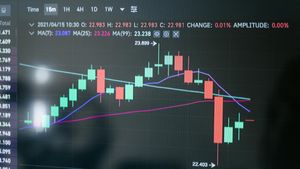Germany is gearing up for its federal election, set for February 23, 2025, as approximately 59.2 million eligible voters prepare to cast their ballots under new voting regulations. This election has been expedited following the collapse of the coalition government led by Chancellor Olaf Scholz, who lost a vote of confidence, triggering the need for early elections.
The Christian Democratic Union (CDU) is marking its territory early on with bold campaign strategies. On February 20, during its party convention in Berlin, the CDU plans to present a comprehensive immediate program, titled "Wohlstand und Sicherheit" (Prosperity and Security), intended to showcase what the party will accomplish if it returns to power. The program, reportedly outlined by various news agencies, includes 15 key measures focusing on economic and asylum policy promises.
Among the proposed measures, the CDU seeks to alleviate financial burdens by proposing to slash the electricity tax and network fees, paving the way for at least five cents reduction per kilowatt-hour. Additional plans include bureaucratic rollbacks, such as eliminating requirements for daily records and offering flexibility for lower working hours. Notably, any pensioner wanting to work will have the opportunity to earn up to 2,000 euros per month tax-free, signaling the party's emphasis on creating favorable working conditions.
Migration policies remain at the forefront of the CDU's agenda. Alongside the party's five-point plan led by Chancellor candidate Friedrich Merz—which includes permanent border controls and the rejection of migrants at the borders—the CDU aims to reinstate laws aimed at limiting migration, including repealing the family reunification policy for some migrants. The CDU starkly declares, "Der deutsche Pass steht am Ende der Integration und nicht am Anfang," emphasizing its stance on citizenship.
Besides the CDU, various political players are also jostling for attention, preparing for the upcoming vote. A total of 16 parties will be listed on the ballot by the local electoral committee of Baden-Württemberg, after six applicants were rejected. This diverse candidate lineup reflects Germany's multifaceted political spectrum, which includes significant representation from both major and minor parties. Political scientist Frank Brettschneider from the University of Hohenheim notes the challenging dynamic posed by smaller parties, which, though they often trail below the five percent threshold necessary for representation, can influence the overall voting behavior.
Brettschneider explains, "Sonstige beeinflussen die Regierungsbildung"—highlighting how these 'other' parties might sway results and complicate coalition-building efforts. The risk for mainstream parties is clear; should these smaller factions receive substantial voter support, established parties might find themselves needing to accommodate the demands of these groups to form governing coalitions.
The strategic movements of these parties may be increasingly important as voting day approaches, particularly since many political dynamics have shifted post-Ampel government collapse. There is growing speculation around possible coalitions, depending on who manages to secure voter approval come February 23rd. Polling data indicates CDU may have to engage with either the SPD or the Greens to form a workable coalition.
The nuances of electoral behavior are under scrutiny, as analysts predict the presence of single-issue parties creating shifts among voters dissatisfied with their primary parties—particularly notable are the environmental-focused parties, which reflected growing concern around climate policies and resonate with traditional Green voters both frustrated with their party's current stance.
Funding dynamics also play a role, as small parties can capitalize on state subsidies tied to their voting performance, potentially creating additional pressure on larger political entities. For the 2025 federal elections, particularly within Baden-Württemberg, the government will need around 80,000 election workers to facilitate the logistical demands of the upcoming vote, providing yet another layer of complexity as strategies turn to tactics.
Looking forward to this significant election, major parties face the question of whether their strategies will effectively resonate with the broader electorate, which remains as divided about its future as the political spectrum it must navigate to reach consensus.
With the scholarly insights of figures like Brettschneider shedding light on these dynamics, one thing is clear: the outcome of this election will establish the political foundation for Germany's future, making every vote count and every strategy pivotal.



